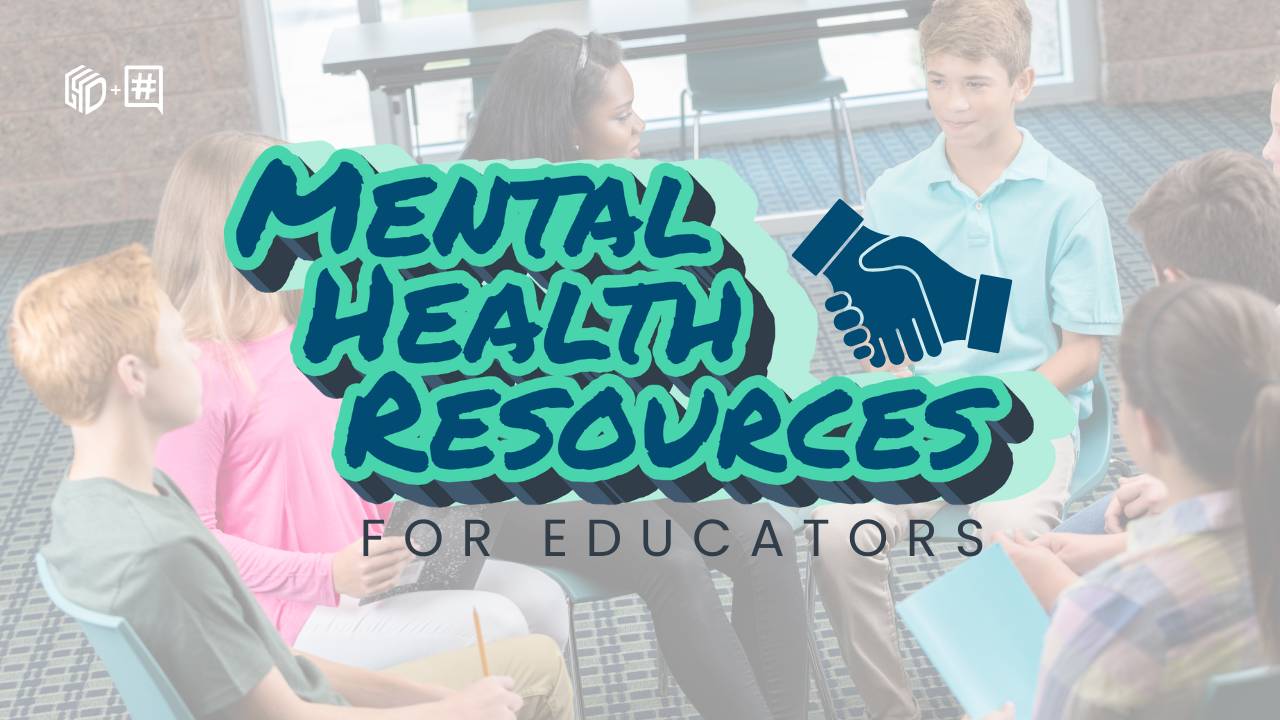Mental Health Resources for Educators in 2025
Jul 04, 2025
By: Zara Iftikhar, Seasonal Public Relations Intern | Digital4Good
Teaching has dramatically evolved, introducing new challenges such as online discussions, digital submissions, and an endless flow of emails. While these systems may feel seamless to incoming educators, they can create stress for those used to traditional classroom environments.
Fostering a culture of shared leadership and empowering teachers to contribute to decision-making is vital, but also adds to their mental load. It is no surprise that teacher mental health is under pressure.
So the critical question is: How can educators protect and nurture their mental health in 2025?
Why Educator Mental Health Is Crucial
Teachers are the heart of the classroom, and their well-being directly impacts student success and classroom climate. Yet, discussing mental health often feels taboo due to:
Stigma:
There is still significant stigma around sharing feelings of burnout, stress, or emotional exhaustion. Fear of judgment can deter educators from seeking support or counseling.
Time Constraints:
Between grading, meetings, student engagement, and administrative tasks, educators have little time left for self-care. This overwhelming schedule can push mental health to the bottom of the priority list.
Affordability:
Mental health care can be expensive. While some districts offer assistance, many educators struggle to afford therapy or wellness resources on their own.
Emotional Exhaustion:
Teachers not only instruct but act as emotional support systems for their students. Over time, this constant caregiving can lead to compassion fatigue and burnout.
Up‑to‑Date Systemic Supports for Educators
Federal and State-Level Policies
Recent grants and policy shifts have aimed to improve educator mental health through funding wellness initiatives and prioritizing mental health days.
School‑ and District‑Level Initiatives
Districts are now implementing wellness programs, flexible scheduling, and peer support networks to help teachers manage stress more effectively.
Professional & National Mental Health Resources
Offers digital guides and resources for educator well-being.
Provides free meditation exercises to help manage stress.
Features resources, training, and micro-credentials in Adult Social Emotional Learning.
Offers educator-focused mental health frameworks and resilience tools.
Supplies trauma-informed guidance for staff and student mental health.
Personal Self‑Care Strategies
Breaks
Regular breaks can reduce stress and recharge your energy. Rest is a necessity, not a weakness.
Digital Detox
Disconnecting from work-related devices for a few hours can restore clarity and balance.
Positivity & Reflection
Celebrate your achievements, reward your efforts, and maintain a gratitude journal to boost your mood.
Exercise
Even gentle movement — a short walk or home stretching — can ease stress and improve mental well-being.
Preventing Compassion Fatigue
Learning to set emotional boundaries and practicing self-compassion can help avoid burnout.
Implementing Peer Support & Trauma‑Informed Practices
Creating peer support groups, mentoring circles, and trauma-informed school cultures helps teachers feel heard and valued while reducing feelings of isolation.
Quick Action Plan for Educators
- Schedule one self-care moment each day.
- Research mental health days offered by your district.
- Explore free online resources like NIMH or NEA.
- Connect with a trusted colleague for peer support.
FAQs
How can a teacher reduce stress during the school day?
Short breathing exercises, hydration, and brief movement breaks can help lower stress levels.
What is compassion fatigue?
Compassion fatigue is emotional exhaustion caused by prolonged caregiving roles, common among educators.
Where can educators find free mental health support online?
Websites like NIMH.gov, NEA.org, and SAMHSA.gov offer free resources and educational guides.
Stay connected with news and updates!
Join our mailing list to receive the latest news and updates from our team.
Don't worry, your information will not be shared.
We hate SPAM. We will never sell your information, for any reason.


